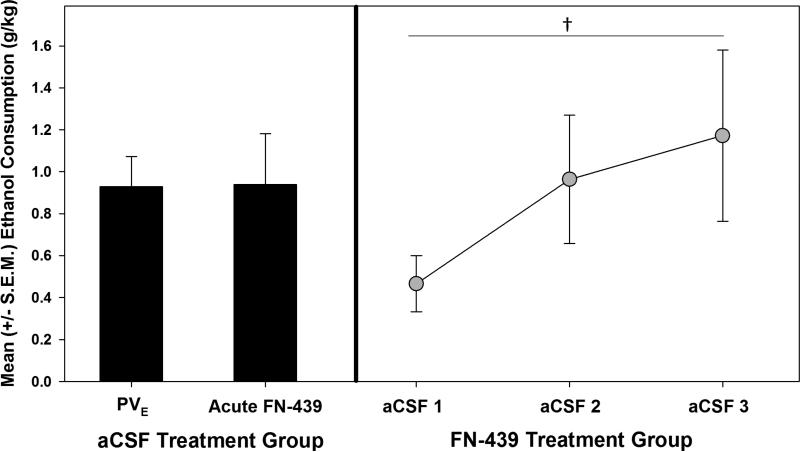Figure 5.
Control conditions required for a learning-based explanation of dependence-induced escalation. Left panel: Mean (+S.E.M) ethanol consumption during the session in which the artificial cerebrospinal fluid (aCSF) – treated animals escalated (PVE) compared to those same animals receiving subsequent acute intracerebroventricular FN-439 infusion. The lack of an acute FN-439 effect shows that once negative reinforcement learning has occurred and the animals show escalated response patterns, inhibition of matrix metalloproteinases has no impact. Right Panel: Mean (+S.E.M) ethanol consumption following acute aCSF infusions in animals initially treated with FN-439 that did not display negative reinforcement learning (i.e., did not show escalated responding)–demonstrates that those animals are capable of learning and display a normal dependence-like phenotype in the absence of FN-439. A significant main effect of session (†= p≤0.05) was observed for the three aCSF-treated sessions.

